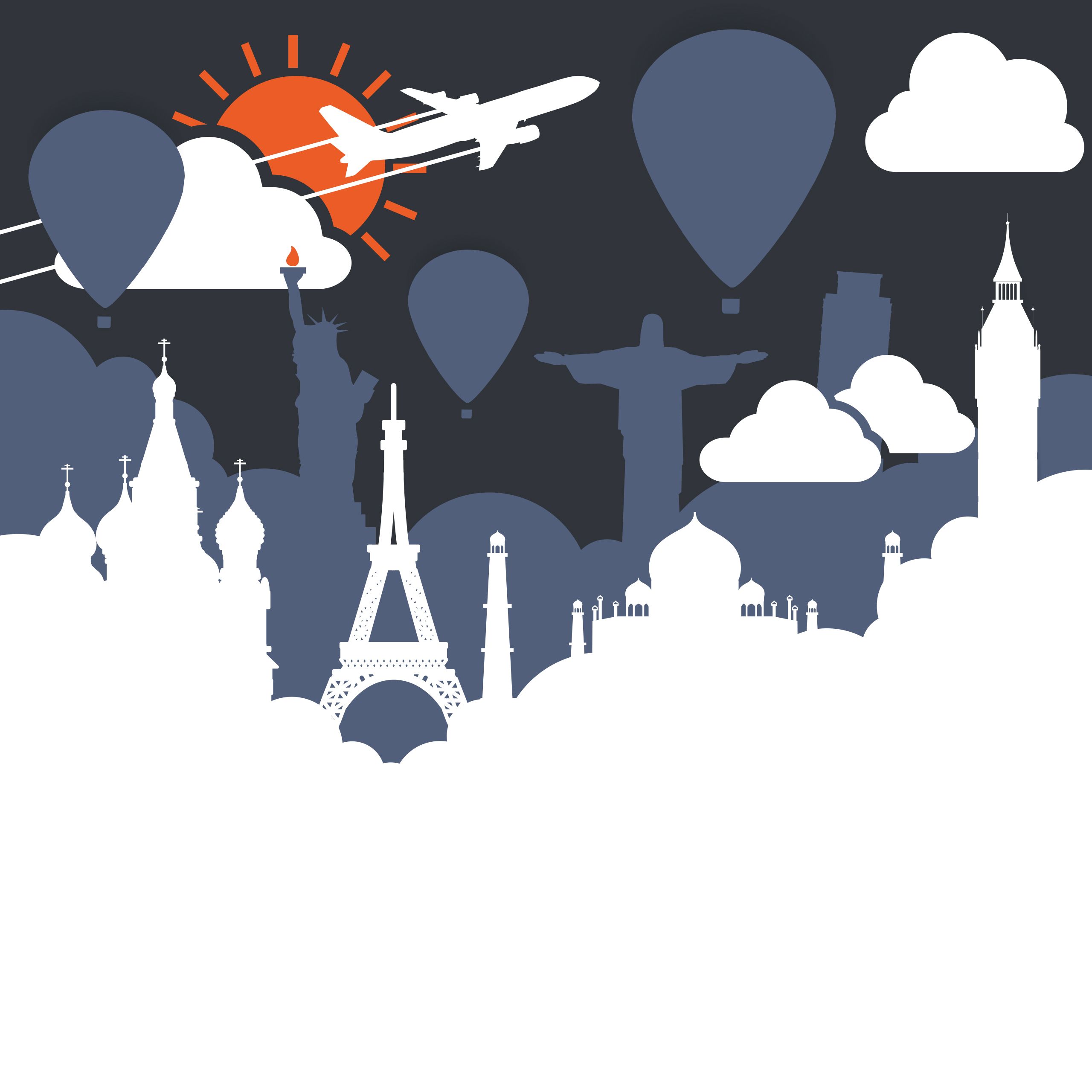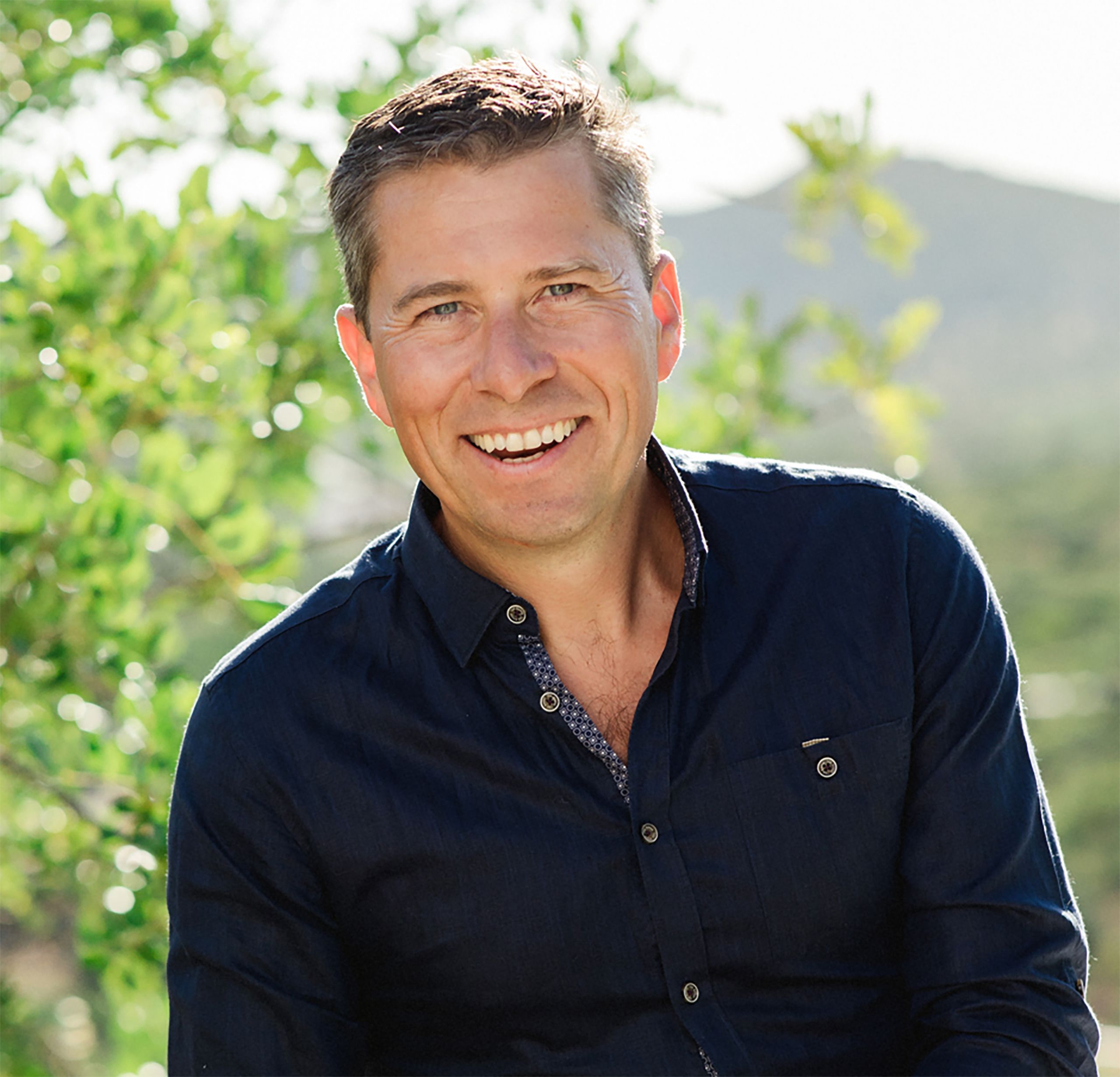HOW TO BE GLOBAL
Tom Fletcher, Principal of Hertford College, Oxford, and previously
the foreign policy adviser to three UK Prime Ministers (2007-11) and
the UK’s Ambassador to Lebanon, calls for the introduction of a global learning passport that will enable learners’ qualifications to be
recognised regardless of the country they are in

The digital age has made humanity more connected than ever before. But the education system in many countries is preventing young people from developing ‘global competence’ – the flexibility and intelligence needed to thrive as the world becomes more interconnected.
Ahead of my speech on the topic at RISING 2022 – a global peace forum held annually in Coventry– here I will share my findings and explain how a rounded, global education will play a crucial role in the younger generation rising to the challenges that the world will face in the future.
Five of the world’s top education pioneers struggled for space on Richard Branson’s Twister mat at Necker Island, as the sunlight danced on the Caribbean in the background. I had asked an education minister to play the part of governments, a professor to represent universities, a campaigner to play the role of parents and a teacher to represent schools. The idea was to capture the chaos that is global education reform, with all its competing interests and constituencies. And to work out together - literally in this case - how to disentangle ourselves.
In the middle of the mat, calm as always amid the chaos, was Andreas Schleicher. The thoughtful, serious German data scientist loomed over us from his 6’4 frame”. For the role play, he was representing international organisations: his day job is Director of Global Education at the Organisation for Economic and Cultural Development. But as the sun beat down, he once again showed why he is seen not just as the most influential education thinker on the planet but as a quiet but vital rebel against entrenched thinking.
“If we’re scared that human jobs will be automated, why are we still teaching kids to think like machines? Artificial Intelligence should push us to think harder of what makes us human. If not, the world will be educating second-class robots and not first-class humans.” He worries that we are not teaching young people what they now need to thrive. “Students who grow up with great smartphones but poor education are at unprecedented risk. In the past teaching content knowledge was the ultimate goal of education but we are no longer rewarded for what we know.”
Schleicher knows what he is talking about. Every three years, he and his team compile the results of the PISA test, taken by over half a million kids in over 80 countries to assess the quality of education. Governments hang on the results, terrified that they will plunge down the rankings. Many commentators have rightly questioned the focus on academic tests - in 2014, 100 academics said that PISA was “impoverishing our classrooms.”
But it turns out that Schleicher himself is the biggest critic. “We have to change what we test if we are to change the way we educate young people”, he told me. He has been in a years-long arm wrestle with education bureaucrats to focus much more on teaching global competence. Basically, to develop the cultural antennae to thrive in such an interconnected world. “You do not understand your own language until you learn another language. You do not understand your own identity until you understand other identities.” Many governments, including the US and UK, opted out of the process. “Our industrial education system is a relic of the 19th century”, he told me, “it may be the young people themselves who have to change it”.
Schleicher is getting support from unexpected quarters. Chinese tech giant Jack Ma started life as a teacher. “I learned everything in life from that”, he told me at an education conference in Paris. “I failed my exams many times. At Alibaba I was a “chief education officer” more than a “Chief Executive Officer.” As well as rewarding teachers more, he says we need a huge overhaul of exams. “Why is it that I have to retrain university graduates when they join my company? A university degree is just a receipt for the money you spend on the tuition.”
I asked Jack what he thinks kids need to learn instead of the rote learning and memorisation that dominates current education. He was unequivocal. “To confront failure, so that they can learn from risk. To be more creative, so that they can work in teams. To learn empathy, so that they can understand those around them. In the 20th century, you won by caring about yourself. In the 21st century by caring about others.”
Like Schleicher, he believes that the missing ingredient is that young people learn how to interact with the world beyond their borders. “The world of tomorrow requires people who can get out of their comfort zones. Kids need to start practising that.”
So are Andreas Schleicher and Jack Ma right? And if so, how can we help our kids to develop the vital survival skill of global competence? And how can we too be more globally agile?
I will be addressing these questions in detail in Coventry at RISING 2022, but to summarise, there are three growing reasons why they matter.
Firstly, automation means that our kids will have to develop a very different skillset to us. As industries rise and fall faster, humans will need to move to where the opportunities are, not stay where they were.
The second big reason: employability. Like Jack Ma, business leaders consistently tell me that education is not providing young people with the social and emotional skills they need to solve problems, work with new information, or fit in well with a team. They say that the skills they look for now are those where humans have an advantage over machines: adaptability, creativity and teamwork. Employers want people who can adapt to new environments.
Most important is the third reason: humanity faces an age of climate crisis, more mass epidemics, huge migration, new forms of warfare and the rise of rival intelligences. All of these massive challenges are global in nature. The world needs people who are able to work comfortably across national and social boundaries if we are to be ready.
How do you test for global competence? The OECD has developed assessments that check how students synthesise knowledge and make connections between ideas. So, for example, you would be rewarded for spotting the link between the climate work you have done in biology or chemistry, the political work you have covered in history and the documentary you saw on the next climate summit. Global competence tests are more likely to reward collaboration and teamwork than solo learning. Students would be encouraged to show how they can identify and understand other perspectives to their own.
My parents had a poster on the wall saying ‘never let school interfere with your education’. Technology now provides you with the tools not just to learn from the teacher next door but the best possible teachers anywhere in the world. But if you don’t have that level of openness and willingness to engage with diversity, you won’t cope. And classrooms risk becoming a lab, market or ego trip for Big Tech.
As Director of the British Museum, Roly Keating is the closest thing we have to a national curator of knowledge. He also sees this risk. “We live in an age of politicisation or simplification of the historical record, or myth-making of various kinds, whether it's about national identity or religious identity or politics or individuals. So our message to young people, to all of us, has to be that when you think you’ve got the answer, ask again. The best critique of the book you just read is the book you're about to read.”
The new dividing lines will be between those who can embrace this readiness to question themselves, to embrace new ideas and cultures. And those who feel left behind by it. Those dividing lines will no longer necessarily be about wealth, or nationality, but whether we are open or closed to the world.
So what skills should we focus on if we are not to end up on the wrong side of that dividing line, to be sufficiently global?

How can we help our kids to develop the vital survival skill of global competence? And how can we too be more globally agile?

In the last quarter of a century there has been a growing effort to tackle this question. US education thinktank Brookings took over 300 lists of key skills and boiled them down to six: critical thinking and problem solving; collaboration and influence, especially with one’s peers and within diverse groups working across national borders; mental agility to adjust for changes and unknowns and to upskill quickly and as needed for career needs; entrepreneurship to identify and act on new ideas; effective communication; the ability to access and analyse information; and curiosity. Rebecca Winthrop, who led the project, told me “with hindsight, it would have been better to keep the learning goals even simpler - life, work and citizenship.”
If you are lucky, your kids will be at a school that is already experimenting with teaching in this way. Harvard education gurus Fernando Reimers and Connie Chung have even developed a curriculum for global citizenship. Fernando told me that we are a long way from countries adopting such a change, “but I don’t doubt for a second that you can build coalitions with various individuals and groups and networks, interested in global citizenship, and that they will do it.”
I asked Connie if there was a danger that the effort increased inequality, because it gave another advantage to those who could afford to send their kids to schools in the vanguard. She agreed that we were at a moment of peril. “The danger is that those who can’t access these global skills will fall further and further behind. That myth of if you study hard you’re going to do well is not going to be true for a lot of our kids. If we can help kids to become leaders who are responsible and think about the common good, we have more chances of coping with these challenges. But the nightmare in the back of my mind is that we may be too late.”
BBC education correspondent Sean Coughlan rightly cautioned me that we must be careful that the idea of ‘global competency’ is not a Western export. Schleicher agrees. When introducing the idea of global competences, he deliberately avoided the label of global citizenship because of the connotations of belonging to a particular nation state.
The challenge for the next phase is to find ways to measure these skills, so that governments, educators, learners and parents are more incentivised to take them seriously. I’ve worked with experts at Cambridge University and UNICEF on a global learning passport, that could allow young people - especially migrants and refugees - to carry qualifications between national systems. The current system places those who move between countries at a significant disadvantage. The learning passport enables - online or offline - continuous access to quality education. As part of my work at NYU, I also explored the potential for a credible global assessment of adaptability for an age of massive human migration. We considered the most important features of global agility. One striking conclusion was that it was often those who had experienced more disrupted lives who were best able to demonstrate these skills.
For example, young refugees often had a highly developed radar. They were used to scanning the environment for opportunities and risks. The most globally agile students were excited about discovering more about the world. This was not - as my generation might sneer - about instagramming suitably exotic experiences or any other self-interested motivation to posture as worldly, but about meeting, interacting and learning from different people and cultures. Without it, genuine global agility is impossible.
We also found that people who have made transitions between cultures also tend to be able to think more critically about the information around them, and not take it at face value. Fake news and the internet have shown many academically smart people that we must learn how not to be dumb, or how not to be reflexive. Globally agile humans are able to sift and combine information from different sources: books, friends, mentors, traditional and digital media. This allows them to develop greater perspective. They are more likely to see different sides to an argument. They are less likely to fall into the trap of reaching emphatic opinions without going through the substance of the argument.
I’ve worked with experts at Cambridge University and UNICEF on a global learning passport, that could allow young people - especially migrants and refugees - to carry qualifications between national systems. The current system places those who move between countries at a significant disadvantage.
We found that global agility also requires digital savviness. Not an ability to code. But more a sense of how to use different platforms effectively and responsibly, and to navigate between them. Young people who struggled to adapt were often those more likely to be propelled by social media towards getting stuck in a gang or echo chamber. Again we found that refugee communities, often those who had not grown up with constant access to social media, were better able to use the access to the internet they had to establish more meaningful connections, for example with distant family, and as the key to accessing essential information. The most adaptable humans of the future will be those who have the flexibility of thinking and doing to be ready for unexpected changes. Developing this skill reduces the culture shock we all experience when encountering new places or people. It increases our resilience.
Our worldviews are shaped by where we come from, and we have multiple, overlapping identities: a child can be a girl, European, tennis player, Muslim and Justin Bieber fan. The key is that she can understand how these different tribes shape her life, and therefore apply the same thinking when she meets people from other tribes. Our individual cultural affiliations are unique, fluid and dynamic. Our values are not uniquely special.
That does not mean that we all become, in Theresa May’s regrettable phrase, citizens of nowhere. The more globally agile individuals we interviewed recognised that their cultural identity was neither fixed nor superior; they saw their self as something they could continue to inform, value and nurture it. They could connect the global and the local. We need to know what baggage we carry, and why. The answer to the 21st century is not to let the friction of globalisation grind away our differences or let us lose a sense of where we are from. We often need to make the connection between local and global, for example understanding the risks of climate change by studying floods in our own neighbourhood. We will be better able to tackle those global challenges when we retain an ability to root them in experiences that people understand.
The more globally agile young people we interviewed also had stronger communication skills: they were more likely to be able to interact respectfully and flexibly with other cultures. Future assessments of young people will need to evaluate whether people can read others’ approaches to communication and adapt, building bridges to new people and cultures, especially those that initially appear most different. It is about listening as much as talking.
The most effective global operators in our study had exceptional antennae. Can you zoom out and see a person or situation in 360 degrees? This means being able to listen humbly and observe, including body language. At its best it also requires a good dose of empathy: can you get in the other person’s shoes, and understand their motivations? The most globally agile people care about the world around them, and think that they can make it better. They can see that people from other places share the same basic rights to food, shelter, work, education, happiness, dignity.
As the late Ken Robinson argued, education should equip people to live together in tolerant and culturally diverse societies, “to understand the world around them and the talents within them so that they can become fulfilled individuals and active, compassionate citizens, able to build lives that have meaning and purpose in an unpredictable future.” Ken told me that the question he is asked most is “where can we go for ideas on how to get that understanding?”
Future humans should be equipped with the vision, judgement and patience to be more global. We should teach students how to be citizens of everywhere, active in creating a more equal, just, peaceful and sustainable world. In doing so, we would do the work of good ancestors, making the world fairer and safer for our descendants. This requires an overhaul of why, how and what we learn.
But it is worth it: education is upstream diplomacy.

